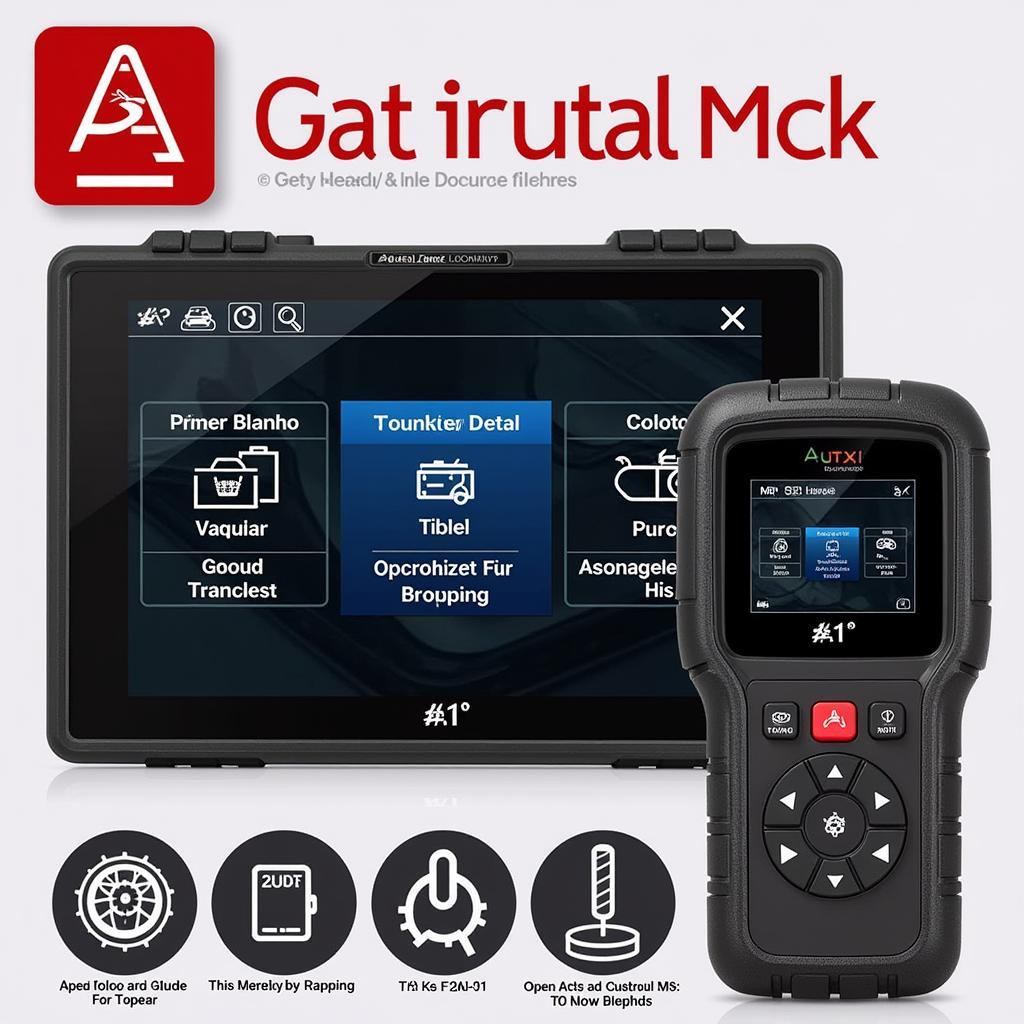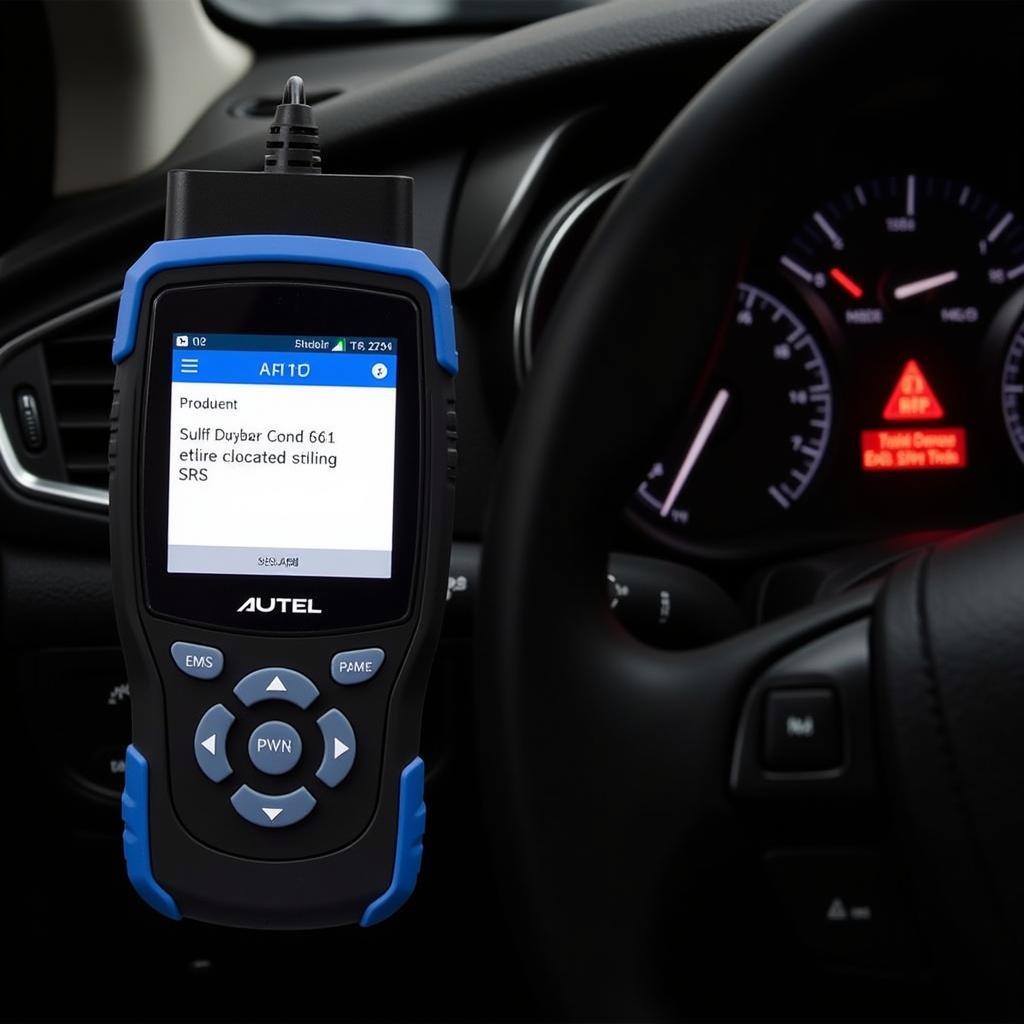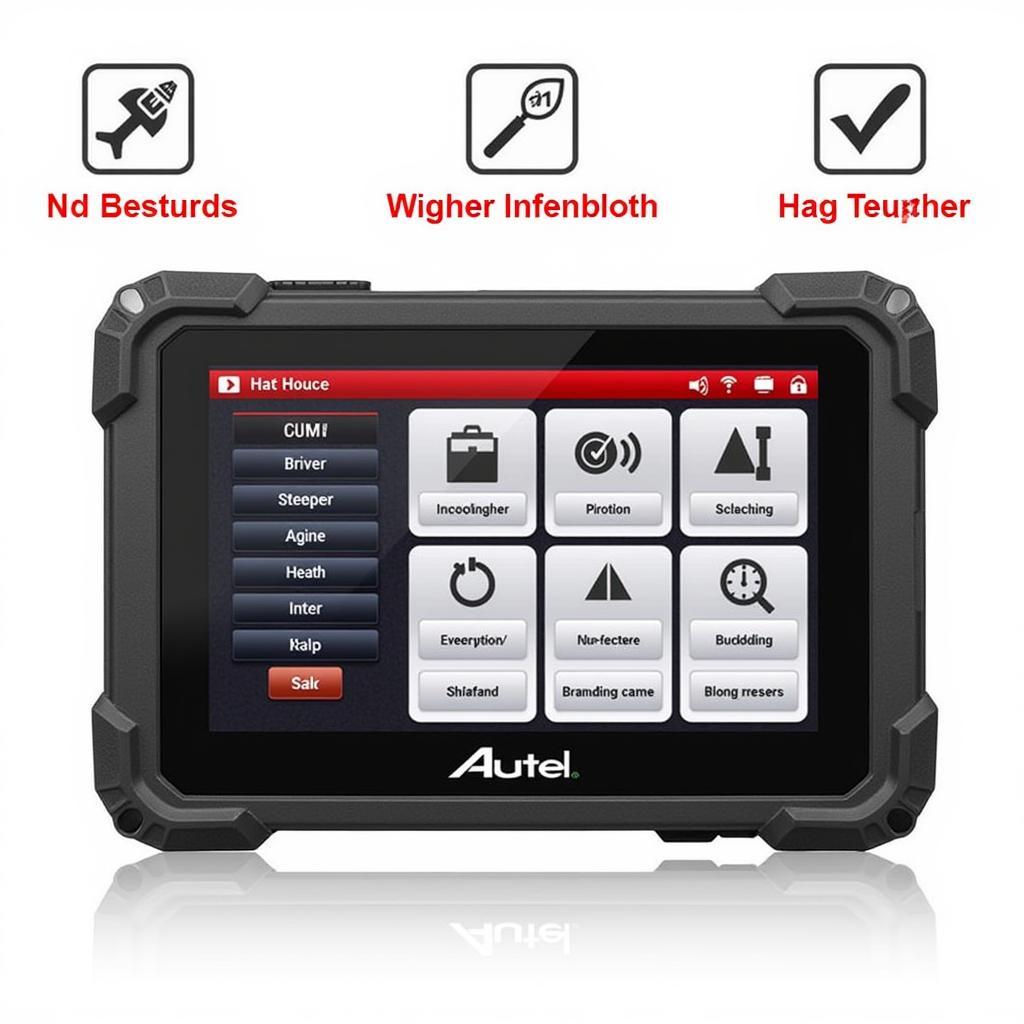Autel is a well-known brand in the automotive diagnostic tool market, offering a wide range of scanners designed to diagnose various vehicle problems. The Autel scanners are known for their user-friendliness and advanced features, including the ability to access and analyze Ford misfire data. Misfires are a common issue in Ford vehicles, and understanding how to diagnose and troubleshoot them is crucial for any mechanic or DIY enthusiast. In this article, we will delve into the world of Autel Ford misfire data and explore the key aspects you need to know.
What is Ford Misfire Data?
Ford misfire data refers to the information recorded by the vehicle’s onboard computer (ECM) regarding misfires in the engine. These data points provide valuable insights into the underlying cause of misfires, such as a faulty spark plug, ignition coil, or fuel injector.
How Does Autel Access Ford Misfire Data?
Autel scanners utilize the OBD-II (On-Board Diagnostics) protocol to communicate with the vehicle’s ECM. This communication allows the scanner to access various data streams, including the misfire data.
What Ford Misfire Data Does Autel Show?
Autel scanners can display various misfire data, including:
- Misfire Counts: The number of misfires detected by the ECM for each cylinder.
- Misfire Frequency: The rate at which misfires occur.
- Misfire Location: The specific cylinder(s) experiencing misfires.
- Misfire Conditions: The conditions under which misfires are occurring (e.g., engine load, RPM).
How to Interpret Autel Ford Misfire Data
Interpreting misfire data requires a thorough understanding of engine operation and diagnostic procedures. Here are some general guidelines:
- High Misfire Counts: A high number of misfires in a specific cylinder indicates a significant problem that needs immediate attention.
- Misfire Frequency: Frequent misfires suggest a persistent issue that requires investigation.
- Misfire Location: Focusing on the cylinder(s) with misfires helps isolate the potential cause.
- Misfire Conditions: Identifying the conditions under which misfires occur can narrow down the potential causes.
Common Causes of Misfires
- Faulty Spark Plugs: Worn out or damaged spark plugs can prevent proper ignition.
- Ignition Coils: Defective ignition coils can fail to deliver sufficient voltage to the spark plugs.
- Fuel Injectors: Clogged or malfunctioning fuel injectors can cause uneven fuel delivery, resulting in misfires.
- Vacuum Leaks: Leaks in the intake manifold or vacuum lines can disrupt the air-fuel mixture, leading to misfires.
- Engine Sensors: Faulty sensors, such as the oxygen sensor or mass airflow sensor, can disrupt the engine’s control system, causing misfires.
“It’s important to remember that misfires can be caused by a variety of factors,” says John Smith, a renowned automotive diagnostic specialist. “Accurate diagnosis requires a comprehensive approach that involves examining both the misfire data and the vehicle’s overall condition.”
Using Autel to Troubleshoot Ford Misfires
Autel scanners are powerful tools that can significantly simplify the diagnosis and repair of Ford misfires. Here are some steps to follow:
- Connect the Autel scanner to the vehicle’s OBD-II port.
- Select the appropriate vehicle model and year.
- Access the misfire data stream.
- Analyze the misfire data and note any patterns or trends.
- Based on the misfire data, perform further diagnostics and inspections.
- Replace or repair the faulty component(s).
FAQs
Q: Can I use any Autel scanner to access Ford misfire data?
A: Not all Autel scanners are compatible with Ford vehicles. Check the scanner’s specifications to ensure it supports your specific Ford model and year.
Q: What is the best Autel scanner for Ford misfire diagnosis?
A: The Autel MaxiCOM MK808 is a popular choice for Ford diagnostics, as it provides comprehensive functionality, including access to Ford misfire data.
Q: How often should I check for misfires in my Ford?
A: It’s a good idea to periodically scan your Ford for misfires, especially if you notice any unusual engine performance issues, such as rough idling, hesitation, or loss of power.
Conclusion
Autel scanners provide valuable insights into Ford misfire data, helping mechanics and DIY enthusiasts diagnose and repair these common engine problems. By understanding how to access, interpret, and utilize this data, you can effectively identify and resolve misfire issues, ensuring your Ford vehicle runs smoothly and efficiently.
If you need assistance with diagnosing or repairing Ford misfires, don’t hesitate to contact us. We have a team of experienced technicians who are available 24/7 to provide support and guidance.


